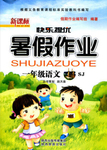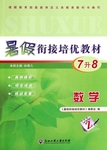题目内容
Nowadays in China, parents care about their children’s education more than anything else. They spend a lot coaching their children in their studies; those who have time or are not able to do it have tutors hired for their children. Many have their children sent to after-class schools. Some others even have tired to improve their living environment. It seems as if a better education is all that parents expect for their children.
The situation can be explained by the following reasons. First of all, the swift development of China’s economy is calling for more and more skilled and knowledgeable workers and professionals(专业人士). Second, the awareness of today’s parents’ has been growing that success in this world depends more on skills and knowledge than on anything else. Skills and knowledge means competitiveness(竞争). At last, with school education becoming more and more expensive, it is natural for parents to expect their children could become somebody or doing something great.
Of course, I’m happy to see much of parents’ attention paid to their children’s education. However, they should not go too far to ignore their children’s abilities and personal qualities. I think the first thing to lean is how to survive and how to be a qualified citizen. if parents can try their best to help children’s characters, it will bring a happy life to their children when they grow up.
阅读下面文章,按照要求回答问题。
1. What’s the main idea of the passage? (Within 15 words)
__________________________________________________________________________2. According to the paragraph 2, why are more and more skilled and knowledgeable workers needed.(Within 15 words)
3. What the meaning of the underlined word “coaching”? (Within 8 words)
4. In author’s opinion, what is also important for children besides sills and knowledge? (Within 10 words)
5. Do your parents care about our education? How? (Within 20 words)
1. It tells us that parents pay much attention to their children’s education in China.
2. Because of the swift development of China’s economy.
3. teaching/ helping/ training
4. children’s abilities and personal qualities
5. They care about their children’s education more than anything else and they can do anything they can to improve my education。

 新课标快乐提优暑假作业陕西旅游出版社系列答案
新课标快乐提优暑假作业陕西旅游出版社系列答案 暑假衔接培优教材浙江工商大学出版社系列答案
暑假衔接培优教材浙江工商大学出版社系列答案“Long time no see” is a very interesting sentence. When I first read this sentence from an American friend’s email, I laughed. I thought it was a perfect example of Chinglish.
Obviously, it is a word-by-word literal translation of the Chinese greetings with a ruled English grammar and structure! Later on, my friend told me that it is a standard American greeting. I was too thrilled to believe her. Her words could not convince me at all. So I did a research on google.com. To my surprise, there are over 60 thousand web pages containing “Long time no see.” This sentence has been widely used in emails, letters, newspapers, movies, books, or any other possible places. Though it is sort of informal, it is part of the language that Americans use daily. Ironically, if you type this phrase in Microsoft Word, the software will tell you that the grammar needs to be corrected.
Nobody knows the origin of this Chinglish sentence. Some people believe that it came from Charlie Chan’s movies. In the 1930s, Hollywood moviemakers successfully created a world wide famous Chinese detective named “Charlie Chan” on wide screens. Detective Chan likes to teach Americans some Chinese wisdom by quoting Confucius. “Long time no see” was his trademark. Soon after Charlie Chan, “Long time no see” became a popular phrase in the real world with thanks to the popularity of these movies.
Some scholars refer to America as a huge pot of stew. All kinds of culture are mixed in the stew together, and they change the color and taste of each other. American Chinese, though a minority ethnic(少数民族的成员) group in the United States, is also contributing some changes to the stew! Language is usually the first thing to be influenced in the mixed stew.
You can have some other examples than adoptions from Chinese, such as pizza from Italian, susi from Japanese, and déjà vu from French etc. There is a long list! Americans do not just simply borrow something from others. They will modify it and make it their own, so you would not be surprised to find a tofu and peanut butter hamburger in a restaurant, or to buy a bottle of iced Chinese green tea with honey in a grocery store. Since Americans appreciate Chinese culture more and more nowadays, I believe more Chinese words will become American English in the future. In this way the American stew keeps adding richness and flavor.
【小题1】The writer himself felt surprised at ______.
| A.the Chinglish expression “Long time no see” |
| B.“Long time no see” used as standard American English |
| C.so many literal translation of the expressions used in America |
| D.finding out Americans use the expression every day |
| A.mixture literature | B.Confucius’ words |
| C.a kind of cooked dish | D.American changing cultures |
| A.detectives translate the phrase “Long time no see” |
| B.Hollywood made “Long time no see” popular |
| C.the huge pot of stew greatly affects all kinds of languages |
| D.cultures can be changed in the huge pot of stew |
| A.some Chinese expressions are introduced into English |
| B.you’ll not be surprised at a tofu in a restaurant in America |
| C.some American expressions can be used in China |
| D.American English keep being enriched from different cultures |
| A.Informal language sometimes doesn’t go with grammar and structure. |
| B.Languages are always ruled by grammar and structure. |
| C.Long time no see” has been used in at least four media mentioned in the passage. |
| D.There are four languages mentioned to be adopted in the American stew. |